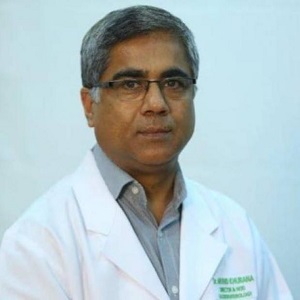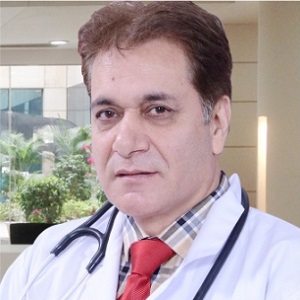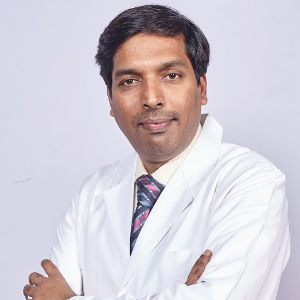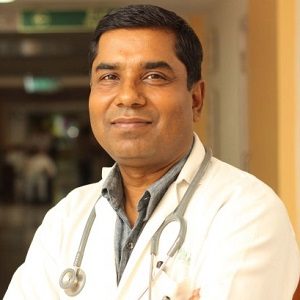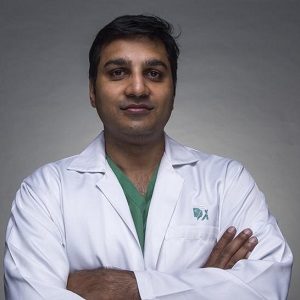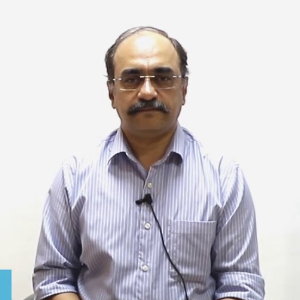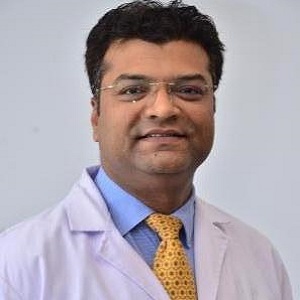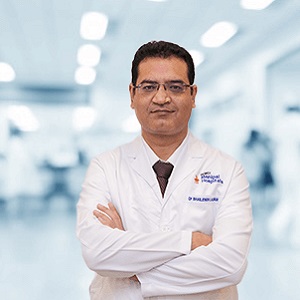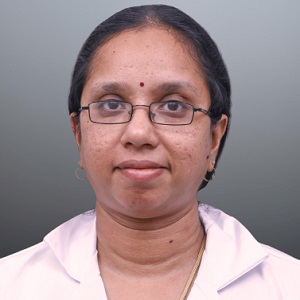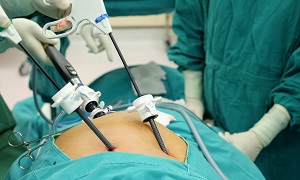Best Doctors in India for Colectomy
- Gastroenterologist, Gurugram, India
- Over 33 years’ experience
Profile Highlights:
- Dr. Arvind Kumar Khurana is a well-known name in the field of gastroenterology and has a keen interest in Gastroenterology, Hepatology, Endoscopy, Onco-Gastroenterology, and Endoscopic Ultrasound.
- Dr. Khurana has successfully performed over 1,50,000 Endoscopic procedures, including over 20000 cases of EPT/CBD stones removal & Biliary Stenting, 2000 metallic stenting, 950 cases of foreign body removal, and 2000 PEG cases.
- Gastroenterologist, Gurugram, India
- Over 17 years’ experience
Profile Highlights:
- Dr. M A Mir is a well-known Gastroenterologist and Endoscopist with a vast experience of more than 17 years in the field of Gastroenterology.
- Before joining Artemis Hospital he was associated with Pushpawati Singhania Research Institute for Liver and Digestive Diseases, New Delhi as a Consultant Gastroenterologist and Endoscopist.
- He is experienced in all gastrointestinal procedures such as diagnostic and therapeutic upper and lower GI endoscopies.
- Liver Transplant & HPB Surgeon, Gurugram, India
- Over 20 years’ experience
Profile Highlights:
- Dr. Ajitabh Srivastava is a reputed HPB and Liver Transplant surgeon in India.
- He has been a key member of teams that performed over 1500 liver transplants including living donors, deceased donors, pediatric transplants, and combined liver and kidney transplants.
- He is an expert in other complex procedures involving hepatobiliary surgery, combined liver, and Kidney Transplant, and vascular access surgery.
- Gastroenterologist & Hepatologist, New Delhi, India
- Over 30 years experience
Profile Highlights:
- Dr. Amitabha Dutta is a renowned Gastroenterologist and Hepatologist with 10 years of experience as a specialist. He has more than 30 years of professional experience in gastroenterology and general medicine.
- After practicing for 10 years in the UK, Dr. Dutta relocated to India and joined Apollo Hospitals in 1995. He was the one to set up the Gastroenterology department at Apollo Hospital, and he continues to work as a senior consultant in the Department of Gastroenterology and Hepatology at Indraprastha Apollo Hospital.
- Dr. Amitabha Dutta offers non-surgical treatment for various issues ranging from piles, skin tags, and acidity to Ulcerative Colitis and the current Coronavirus outbreak.
- He got MRCP certification from The Royal College of Physicians Of Ireland.
- Surgical Gastroenterologist, Liver Transplant Surgeon, New Delhi, India
- Over 18 years experience
Profile Highlights:
- Dr. Neerav Goyal is one of the best Liver transplant surgeons in India. He is the Head of the Apollo Liver Transplant, Hepatobiliary, and Pancreatic Surgery unit in New Delhi.
- Dr. Neerav Goyal is providing the best care to patients with Hepatectomy/ liver transplant in case of liver cancer or liver cirrhosis, surgeries for pancreatic cancer, etc.
- He is a Gold Medalist practitioner who performs complex surgeries with success.
- Dr. Goyal has performed over 2100 liver transplants in his 18 years of experience. This also includes 500+ cadaver liver transplants and 220 pediatric liver transplants.
- Gastroenterologist and Hepatologist, New Delhi, India
- Over 24 years’ experience
Profile Highlights:
- Dr. Abhishek Deo is one of the finest Gastroenterologists and Hepatologists in India with an outstanding experience of over 24 years.
- His clinical proficiency lies in the field of Gastroenterology, Liver Disease, Diagnostic Therapeutic Endoscopy, and Advanced Therapeutic Endoscopy procedures.
- After completing the initial 14 years of working hand-in-hand with the top gastroenterologists in UK, he returned back to India in 2010 and started his practice in Gastroenterology and General Medicines.
- Medical Gastroenterologist, Hepatologist, New Delhi, India
- Over 35 years experience
Profile Highlights:
- Dr. Sanjay Sikka is a general physician who specializes in medical gastroenterology. He is a gastroenterologist and hepatologist with over 32 years of experience in liver disease, therapeutic endoscopy, and gastrointestinal consultations.
- Dr. Sikka is practicing as a senior consultant in the Gastroenterology department at Indraprastha Apollo Hospitals, New Delhi.
- Being Professor at the GSUM Medical College in Kanpur, Dr. Sanjay Sikka was also involved in scholarly activity. He has several papers that appeared in numerous national and international periodicals.
- Liver Transplant Surgeon & HPB Surgeon, New Delhi, India
- Over 20 years’ experience
Profile Highlights:
- Dr. Bhushan Bhole is a well-known Liver Transplant Surgeon & HPB Surgeon who has done Advanced Fellowship in Liver Transplantation & Fellowship in Advanced Laparoscopic Surgery, in Birmingham, UK.
- He is an active member of several national surgical associations such as ASI, IASG, IHPBA, ACRSI, MAS, IAGES, IHA & IMA. He has also been awarded many fellowships like FACRSI, IAGES & FMAS.
- Liver Transplant Surgeon & HPB Surgeon, New Delhi, India
- Over 19 years’ experience
Profile Highlights:
- Dr. Shailendra Lalwani is a renowned gastroenterologist at Manipal Hospitals, Dwarka, New Delhi, who has over 19 years of experience as a specialist. His expertise lies in Liver Transplantation and Hepato-pancreatic biliary surgery.
- For his outstanding contributions to the field of gastroenterology, Dr. Shailendra Lalwani has been honored with several awards and recognition. He is also an active member of the Delhi Medical Council.
- Gastroenterologist, Chennai, India
- Over 13 years’ experience
Profile Highlights:
- Dr. M Tarakeshwari is a well-known gastroenterologist who provides various services to her patients and is an expert in cytokines in IBS, treating Hepatitis B in pregnancy as well as renal failure in Cirrhosis.
- Some of the services provided by the Dr. M Tarakeshwari are: Acidity Treatment, Gallbladder (Biliary) Stone Treatment, Bladder Cancer Surgery, Inflammatory Bowel Disease (IBD) Treatment Ulcerative Colitis Treatment, etc
Best Hospitals in India for Colectomy
Rela Hospital, Chennai
- City: Chennai, India
Hospital Highlights:
- RIMC is a multi-specialty hospital in a sprawling area of 36 acres located in Chromepet, Chennai, Tamil Nadu, India.
- The facility has 450 beds including 130 critical care beds, 9 operating rooms, modern reference laboratories and radiology services, and is conveniently located near road, rail and air transportation.
- RIMC is led and managed by world-renowned physicians committed to healthcare.
- RIMC offers the broadest range of clinical care, education, and research. The hospital offers state-of-the-art technology and modern treatment facilities designed to provide health care at an affordable cost.
- Rela Institute is driven by patient needs, comfort and confidence.
CARE Hospitals, Hyderabad
- City: Hyderabad, India
Hospital Highlights:
- CARE Hospitals were established in the year 2000, by CARE Group.
- The multispecialty hospital has 435 beds, including 120 critical care beds, with an annual inflow of 180000 outpatients and 16,000 in-patients.
- The hospital provides specialty medical services in Cardiology, Cardiothoracic Surgery, Pediatric Cardiology, Pediatric Cardiothoracic Surgery, Neurology, Neurosurgery, Nephrology, and Urology.
- The hospital has the first dual source, 128 slice CT scanner (for high precision cardiac imaging) – the first of its kind in south India.
- The hospital offers a wide range of accommodation facilities for the convenience of its varied patient base, ranging from general wards to super deluxe rooms.
Fortis Hiranandani Hospital, Mumbai
- City: Mumbai, India
Hospital Highlights:
- Fortis Hiranandani hospital was established in 2007.
- The hospital is an advanced tertiary care, multi-specialty hospital equipped with 149 beds.
- The hospital is equipped with a super ICU to provide emergency medical care to critically ill patients.
- The hospital is NABH accredited.
- The critical care facility in the hospital is augmented with the state-of-the-art facilities that facilitate speedier diagnosis and efficient monitoring.
- The hospital provides specialty medical services in cardiology, orthopedic science, pediatric science, neurology, diabetic care, urology, nephrology, ENT, obstetrics, gynecology, cosmetic surgery, bariatric surgery, neuro and spine care.
Fortis Hospital, Anandpur, Kolkata
- City: Kolkata, India
Hospital Highlights:
- Fortis Hospital, Anandapur, Kolkata is a world-class super-speciality equipped with the latest technologies in the medical world.
- The hospital is NABH accredited.
- This state-of-the-art facility specializes in cardiology and cardiac surgery, urology, nephrology, neurosciences, orthopaedics, digestive care, emergency care and critical care.
- The hospital, governed by integrated Building Management System (IBMS), has a pneumatic chute system, for quick vertical and horizontal transportation between floors, facilitating speedy transfer of patient specimens, documents, reports, and medicines to the concerned departments.
- The hospital also has a nephrology department with over 28 advanced dialysis units.
Fortis Hospital Banerghatta, Bengaluru
- City: Bengaluru, India
Hospital Highlights:
- Fortis Hospital Bannerghatta, Bengaluru was established in 2006.
- The hospital is a 276 bedded multi-specialty tertiary care facility.
- The hospital specializes in cutting-edge medical technology and dedicated patient care services.
- The hospital is equipped with state-of-the-art technologies like trans-radial angioplasty, trans-abdominal cardiac surgery, and computerized TKR navigation surgery.
- The hospital provides specialty medical services in cardiology, cardiac surgery, orthopedics, neurology, neuro-surgery, GI, and Minimal Access Surgery (MAS).
Gleneagles Global Hospital, Parel, Mumbai
- City: Mumbai, India
Hospital Highlights:
- Gleneagles Global Hospital The 450-bed facility comprises of 17-stories, housing state-of-the-art infrastructure, and advanced medical care facilities.
- The hospital offers end-to-end clinical, surgical, and diagnostic services. It is equipped with a team of eminent medical professionals aided by qualified nurses and medical staff
- The Hospital offers advanced Endoscopic procedures, Hepatobiliary and Liver Surgeries, Surgical and Medical Gastroenterology, Bariatric Surgery, and Robotic surgery.
- The hospital is a center of excellence for Orthopedics, Joint Replacement, Knee Replacement, and Hip Replacement surgery.
Jaypee Hospital, Noida
- City: Noida, India
Hospital Highlights:
- Jaypee Hospital is the flagship hospital of the Jaypee Group.
- This hospital has commissioned 525 beds in the first phase and has been planned and designed as a 1200 bedded multi-specialty facility.
- It holds the accreditation of the NABH and NABL.
- The hospital has state-of-the-art infrastructure equipped with the latest technologies and modern equipment like 64 Slice PET CT, Dual Head 6 Slice SPECT CT, Gamma Camera, and Da Vinci Robotic Surgery for comprehensive robotic surgical solutions.
- It has special Centers dedicated to the major specialties to provide hassle-free and high-quality clinical care.
Manipal Hospital, Dwarka, Delhi
- City: New Delhi, India
Hospital Highlights:
- Manipal Hospitals, Dwarka, is a super-specialty hospital in Dwarka, New Delhi, which is a part of Manipal Hospitals Group.
- The hospital aims to provide the best treatment on par with international standards at a fraction of the cost.
- Equipped with 380 beds, the hospital is also one of the new age hospitals which are equipped fully with state-of-the-art infrastructure, cutting-edge technology as well as the latest and advanced clinical practices. The hospital also has 13 modular Operation theatres with 118 beds which are solely meant for critical care.
- The hospital comprises internationally acclaimed doctors and highly professional and experienced hospital and medical staff who are able to provide preventive, therapeutic, and diagnostic services all under one roof.
Paras Hospital, Gurugram
- City: Gurugram, India
Hospital Highlights:
- Paras hospital was established in 2006 and is the 250 bedded flagship hospital of Paras Healthcare.
- The is supported by a team of doctors of international and national repute.
- The hospital is NABH accredited and also the first hospital in the region to have a NABL accredited laboratory.
- The hospital provides specialty medical services in around 55 departments including Neurosciences, Joint Replacement, Mother & Child Care, Minimal Invasive Surgery, Gynecology and Obstetrics, Ophthalmology, Dermatology, Endocrinology, Rheumatology, Cosmetic and Plastic surgery.
- The hospital is equipped with state-of-the-art technologies.
S L Raheja Hospital, Mahim, Mumbai
- City: Mumbai, India
Hospital Highlights:
- SL Raheja hospital is a 140-bed multi-specialty tertiary care hospital that is being managed by Fortis Healthcare Ltd.
- The hospital is a benchmark in healthcare and medical facilities in the neighborhood of Mahim & the western suburbs.
- L.Raheja Hospital, Mahim has one of the most effective ICU and Casualty care services.
- The hospital provides specialty medical services in Cardiology, Oncology, Neurology, Orthopedics, Mother & Child Care, and in Diabetes.
COLECTOMY
Colectomy is a surgery for removing a part of the colon or all of it. It is also known as large bowel resection. Colon also known as large intestine, is a long tube-like organ which lies at the end of the digestive tract. Colectomy can be required to treat or prevent any diseases or conditions which can affect the colon.
Types
There are different types of Colectomy operations which include:
- Total Colectomy, which removes the entire colon.
- Partial Colectomy, which involves removing a part of the colon. It is also termed as a subtotal colectomy.
- Hemicolectomy, which removes the right or left portion of the colon.
- Proctocolectomy, which removes removing both the colon and rectum.
Colectomy surgery can sometimes require few other procedures for reattaching the remaining portions of your digestive system so that waste can easily leave the body.
Purpose
Colectomy is done for treating as well as preventing several diseases and conditions that can affect the colon, such as:
Unstoppable bleeding- Severe bleeding from the colon might require surgery in order to remove the affected portion.
Bowel obstruction– A blocked colon is an emergency, which may require partial or even total colectomy depending on the condition.
Colon cancer– Early-stage cancers might require removal of only a small section of the colon. However, at a later stage, it can require more of the colon to be removed.
Crohn’s disease- If medications for crohn’s disease are not being effective, you will find temporary relief from symptoms after the affected part of the colon. Colectomy is also considered as an option if precancerous changes are found during a test.
Ulcerative colitis- Your doctor might be recommending total colectomy if medications are not helping you control your symptoms. If precancerous changes are found during a colonoscopy, colectomy might also be considered an option.
Diverticulitis– Your doctor might also recommend surgery for removing the affected portion of the colon, if your diverticulitis recurs or if you are experiencing complications of diverticulitis.
Preventive surgery- If you have a high risk of colon cancer, due to the forming of precancerous colon polyps, you have the option to undergo total colectomy, as this will help you prevent cancer in the future. Colectomy can also be an option for people who are having inherited genetic conditions that might increase the risk of colon cancer.
Preparation
During the days before your colon surgery, your doctor might ask you to:
Stop taking certain medications- Certain kinds of medication can increase the risk of complications during surgery, so it is important that before you go through the surgery, you stop taking them.
Fast before your surgery- Prior to your procedure, you might need to stop eating and drinking for several hours to a day.
Antibiotics- In a few cases, your doctor may prescribe you antibiotics to suppress the bacteria which are found naturally in your colon, as this will help prevent infection.
A solution to clear your bowels- Your doctor might prescribe a laxative solution that you need to mix with water and drink over several hours, as directed by your doctor. The solution will help you empty your colon within some time.
It is also to be noted that it isn’t always possible to prepare for colectomy, as sometimes you might need an emergency colectomy, due to bowel obstruction or bowel perforation.
You will need to spend a few days in the hospital after the procedure depending on your situation. Consider making arrangements for someone to take care of your responsibilities at home as well at work.
Think ahead and pack any objects that you might need while you are recovering at the hospital.
Procedure
When it is time for your surgery, the team will take you to your preparation room, where they will monitor your blood pressure and your breathing. You might be given an antibiotic medication through a vein in your arm.
Next, they will take you to an operating room, and position you on a table. Then you will receive a general anesthesia medication and will be put to a sleep-like state so that you will not be aware during your operation.
After this, the surgical team will be proceeding with your colectomy. Colon surgery can be performed in two ways.
Open colectomy
Laparoscopic colectomy
Also known as minimally invasive colectomy, which involves multiple small incisions in your abdomen. Your surgeon will pass a tiny video camera through one incision and special surgical tools through the other ones. The surgeon will be watching a video screen in the operating room as the tools will free your colon from the surrounding tissue. The colon will be next brought out through one small incision in the abdomen. This will be allowing your surgeon to perform the operation on your colon outside of your body.
Once the repairs are made to the colon, the surgeon will be reinserting the colon through the incision.
Depending on your condition and the expertise of your surgeon, it will be decided which type of operation you will be undergoing.
Laparoscopic colectomy reduces the pain and recovery time after surgery. However, everyone cannot be considered a candidate for this kind of procedure. In some situations, the operation can begin as a laparoscopic colectomy. But circumstances can force the surgical team to convert to open colectomy.
After your colon has been repaired or removed, the surgeon will be reconnecting your digestive system so that your body can expel waste.
There are multiple options which include:
- Rejoining the remaining portions of your colon- The surgeon can stitch your colon’s remaining portions together to create what is called an anastomosis. This will allow the stool to leave the body as before.
- Connecting your intestine to an opening created in your abdomen- Your surgeon can attach your colon or small intestine to an opening created in your abdomen. This will allow the waste to leave the body through the opening called the stoma. You might need to wear a bag on the outside of the stoma to let the stool pass out properly. This may be temporary or permanent.
- Connecting your small intestine to your anus- After both the colon and the rectum is removed, the surgeon can use a portion of your small intestine for creating a pouch which is attached to your anus, to allow you to expel waste normally. However, you might experience several watery bowel movements each day.
Before you go through the operation, you will need to discuss your options with your surgeon.
After your colectomy
After surgery, the team will take you to a recovery room so that they can monitor you as the anesthesia wears off. Then your health care team will be taking you to the hospital room to continue the recovery.
You will need to stay in the hospital until you are able to regain your bowel function. You may need a couple of days to a week for this.
Since you might not be able to eat solid foods at first, they might give you liquid nutrition through a vein. Soon, you can transition to drinking clear liquids. Soon, as your intestines recover, you can eventually add solid foods.
If your surgery involved a colostomy or ileostomy for attaching your intestine to the outside part of your abdomen, you will need to meet an ostomy nurse who can guide you in how to care for the stoma. He/she will explain how to change the ostomy bag for collecting waste.
Recovery
Once you leave the hospital, you need to rest at home for a couple of weeks. Even though you may feel weak at first, you will regain your strength over time eventually.
It is best if you call a family member or a friend to help you with your daily activities until you have recovered fully. It might take some time before your healthcare team tells you that you are recovered enough to get back to your normal activities.
It is important that you take your prescribed medication as directed to prevent pain, infection and/or constipation. Consider changing your diet and drinking more fluids as well as over-the-counter medications.
Try to do deep breathing and relaxation exercises for some time during the day, especially when you find yourself extra tense.

